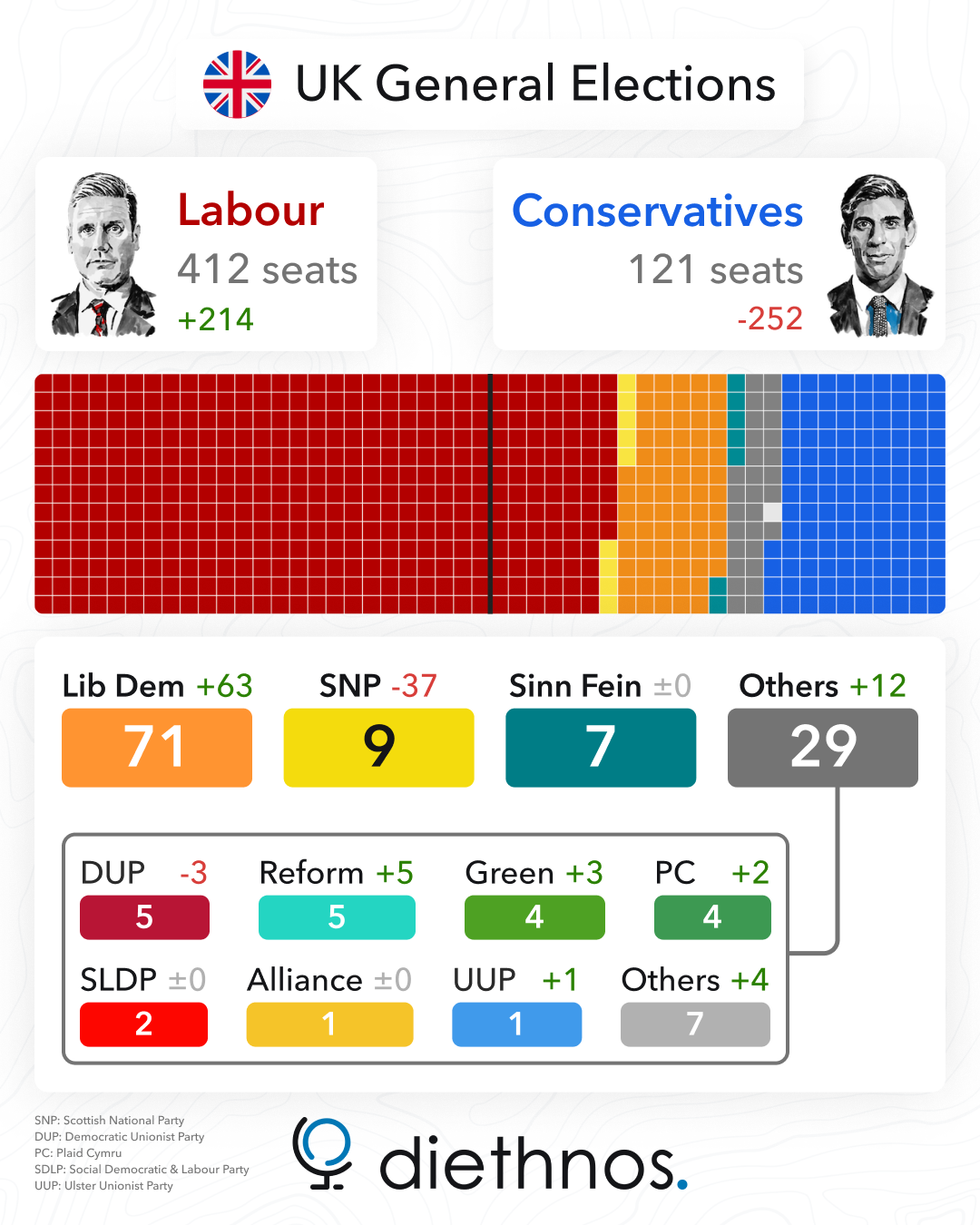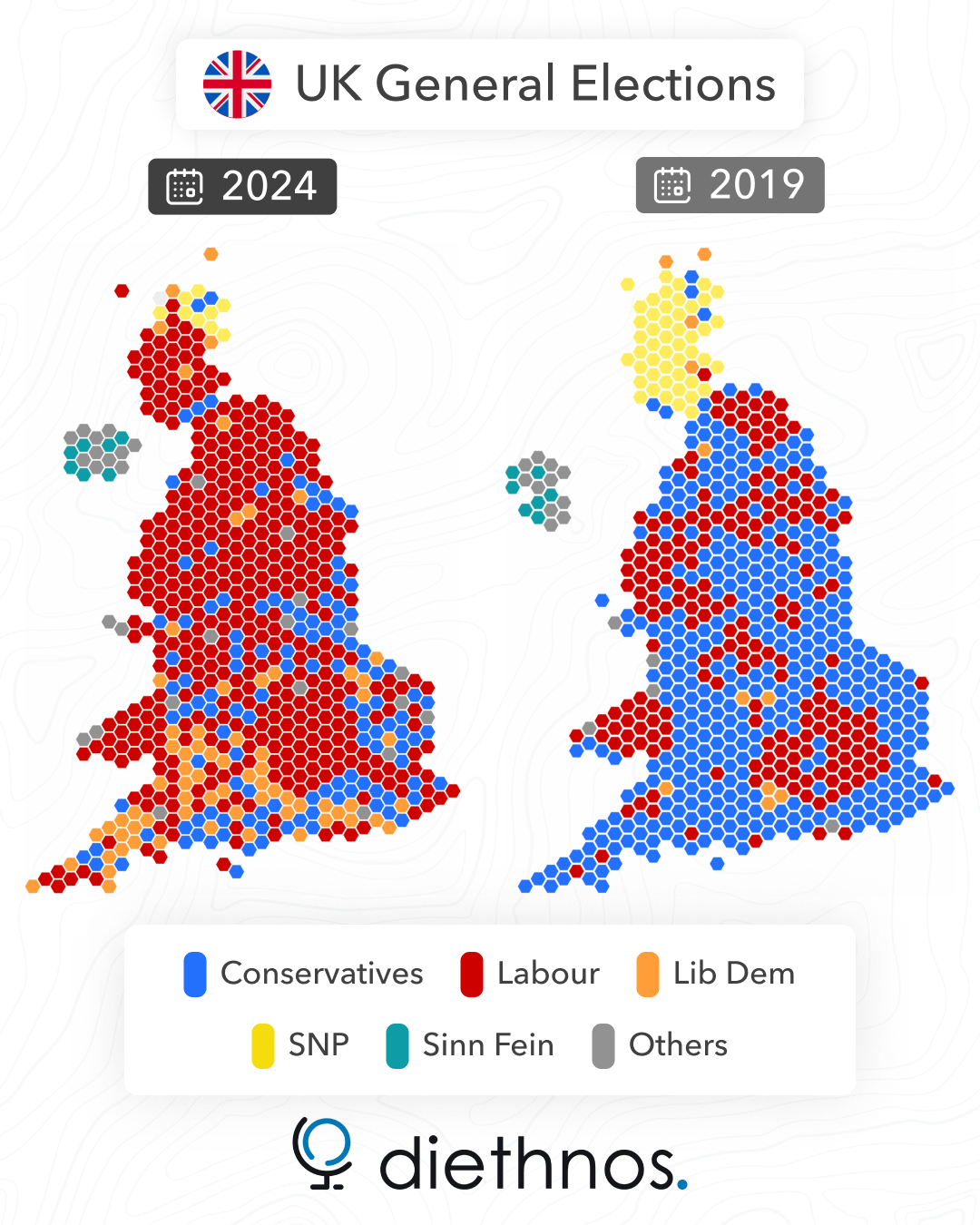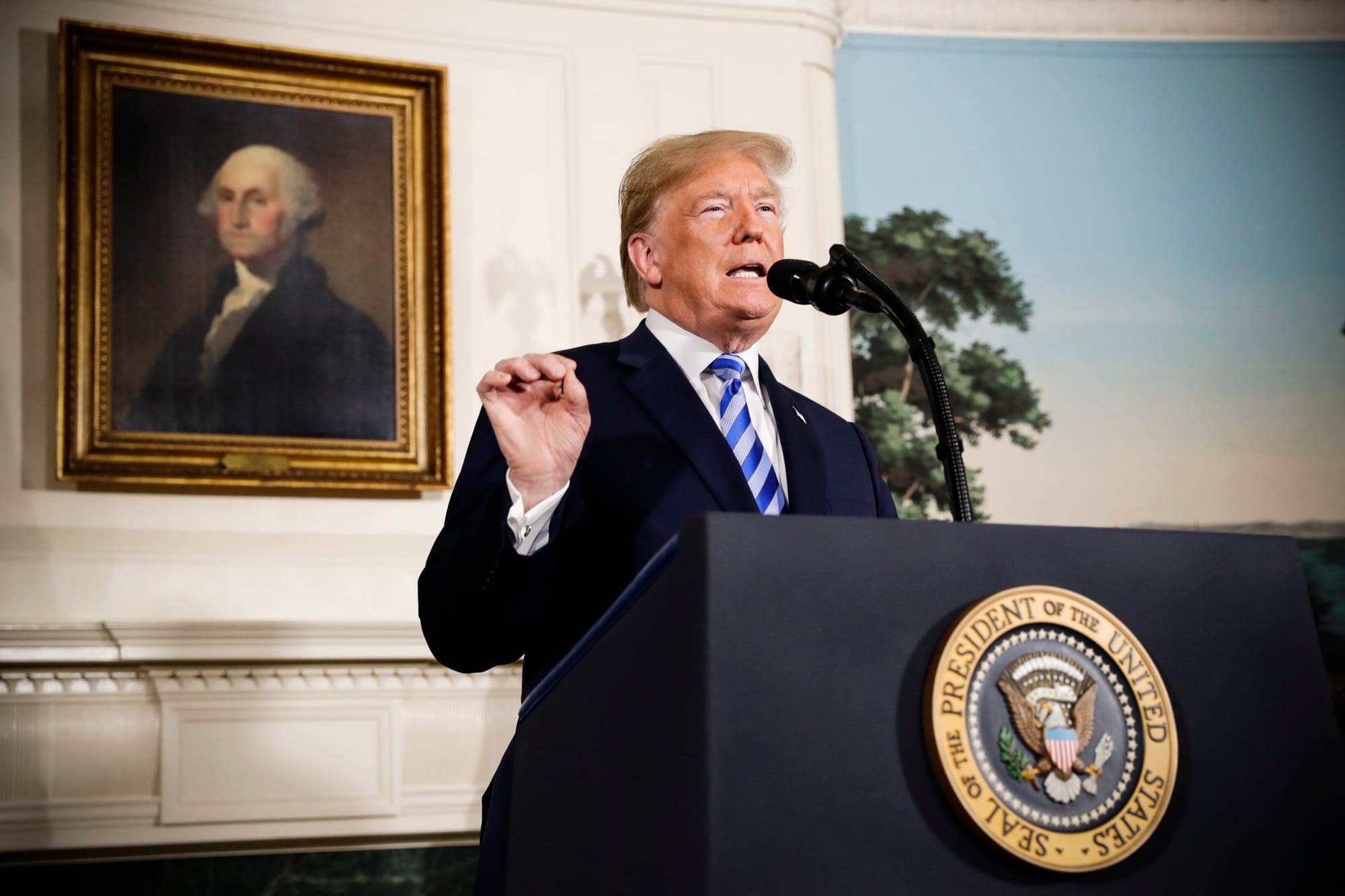In Brief
- Historic defeat for Conservatives: Prime Minister Rishi Sunak’s party captures only 165 seats, the worst result since 1935.
- Economic and public service issues dominate: Voters prioritize the cost-of-living crisis, NHS improvements, and public service funding.
- Positive market reaction: Pound sterling rises by 1.5% against the dollar; FTSE 100 index sees a 2% increase.
- Starmer's leadership affirmed: Labour leader Keir Starmer is set to become Prime Minister, marking a major political shift.

Situation Report
In a stunning electoral outcome, the UK Labour Party has secured a massive majority in the general election held on July 4. Exit polls indicate that Labour, led by Keir Starmer, has captured 385 seats in the House of Commons, well above the 326 required for a majority. This victory is being hailed as one of the most significant shifts in British political history.
Prime Minister Rishi Sunak and his Conservative Party faced a crushing defeat, winning only 165 seats. This result represents the Conservatives' worst performance since 1935, highlighting the public's dissatisfaction with the current administration’s handling of key issues such as the economy and public services.
The Labour campaign centered on tackling the cost-of-living crisis, enhancing the National Health Service (NHS), and increasing investment in education and housing. These issues resonated deeply with voters, many of whom have been struggling with inflation and inadequate public services. Starmer's promise of change and reform garnered widespread support, translating into a decisive electoral mandate.
Financial markets responded positively to Labour’s victory, reflecting investor confidence in the prospect of political stability and effective governance. The pound sterling appreciated by 1.5% against the dollar, while the FTSE 100 index rose by 2%, indicating optimism about the new government’s economic policies.

Assessment
The Labour Party’s overwhelming success marks a significant transformation in the UK’s political landscape. The electorate’s clear demand for change underscores deep-seated frustrations with the Conservative government’s approach to economic management and public services. Keir Starmer's focus on immediate, tangible issues such as the cost-of-living crisis and NHS funding was crucial in securing voter trust and support.
As the new Prime Minister, Starmer faces the challenge of delivering on his campaign promises. His administration will need to act swiftly to address economic disparities, improve public services, and stimulate growth. Effective policy implementation will be essential to maintaining public support and leveraging the substantial political mandate Labour has received.
For the Conservative Party, this defeat necessitates a period of introspection and potential restructuring. The significant loss may prompt a reevaluation of policy direction and leadership. Rishi Sunak’s leadership will likely come under scrutiny, with calls for new strategies to rebuild the party’s appeal.
Internationally, the new Labour government may shift the UK's stance on various issues, including relations with the European Union and trade policies. The impact of these changes will be closely watched by global markets and political allies.
In conclusion, the July 4 election marks a pivotal moment in UK history. The Labour Party’s victory not only reshapes the political and economic landscape but also sets the stage for significant policy changes aimed at addressing the critical challenges facing the nation. The coming months will be crucial as the new government moves to implement its agenda and solidify its position in the eyes of the public and the international community.
















Discussion